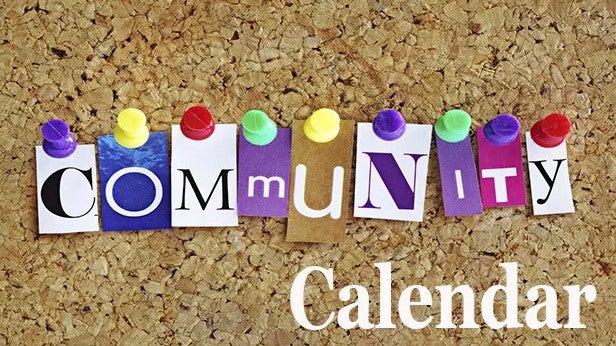‘Pastor Sam’ visits Demopolis from Uganda
Published 11:25 pm Friday, April 10, 2009
In east central Africa, the republic of Uganda has gone through a lot of turmoil and strife, including the reign of dictator Idi Amin, wars, AIDS, the fleeing of refugees and struggles among the nation’s leaders.
However, despite the tribulations seen by the people of Uganda, they hold firm in their faith. According to the 2009 World Almanac and Bok of Facts, 84 percent of the people of Uganda are Christian, with half of those being Roman Catholics.
Making his third visit to Demopolis from Uganda is Sam Kisembo, the pastor of Mutungo Community Presbyterian Church, a member of the Presbyterian Church of Uganda. He is on a missionary trip to the States, going from here to Panama City, then to Pennsylvania for a training conference.
“This is not my first time to come to the United States,” Kisembo said. “Actually, this is my seventh time. I enjoy coming here to help people. You may think that America doesn’t need help, but you need a lot of help spiritually. You have so many people bound by so many things, so many being controlled by the past.
“I have been talking with the African-American community around here, telling them that so many times, we are controlled by our past. We do things and then blame the past: ‘My forefathers were slaves; that’s why I can’t prosper,’ by that is not actually right. The past is actually an opportunity to do something good for yourself in the future.”
Kisembo came to Demopolis on the invitation of Doug McNutt, the assistant minister at the First Presbyterian Church, who met him in Uganda in 2004.
“I was working missions work with the African Christian Training Institute, which he is also a part of,” McNutt said. “We invited Sam here to do a week of teaching ministry at our church and outreach to Demopolis. For example, as part of his teaching ministry, he preached to us last Sunday evening and spoke to the young adult Bible study.
“He spoke at Crossgates on Friday night — a little Easter program for kids and adults — and we’re doing African music along with that. He also got a chance to speak at the high school earlier this week. He’s leaving here on Saturday to go on to Panama City.”
Kisembo has also traveled throughout Africa and Europe on similar missionary trips.
“We bring the message of hope,” he said. “People are asking themselves, ‘What is life?’ Life is a trust; it’s here, and it’s gone. And then, life is a test. You have to go through a lot of tests. Right now, America is going through a lot of tests economically. People like Abraham were tested; people like Job were tested. Also, life is a temporary assignment. You are here, and then, you’re gone.
“So, it tell people that this life is a trust, this life is a test, so you have to be prepared for all of this.”
Kisembo is a native of Entebbe, a city located on Lake Victoria, the source of the Nile River, a key setting in the Bible.
“I always tell that there are so many key figures in the Bible,” he said. “Moses was one of them. He was put in the basket and thrown into the Nile. That basket is very important to the African culture. It is that very basket that, when the bridegroom is being introduced to the parents of the bride, they carry their gifts in the basket. So, Moses was put into the basket and thrown into the Nile, people are able to see that this was a very important child!”
Kisembo said he met some groups throughout the week using an evangelistic approach. His meetings included singing, hamburgers, hot dogs and fun.
Kisembo spoke about the struggles his country has gone through since the 1970s, including its fight against AIDS, which almost decimated Uganda.
“The threat of AIDS is coming down due to the effort of our Christian president and our First Lady,” he said, speaking of President and Mrs. Yoweri Kaguta Museveni. “They are trying to help educate people about AIDS, and we have all the world coming to Uganda to learn how to bring AIDS down.
“We have had a lot of bad history, but that bad history has taught us to work harder to come out of that bad history. When you have a bad history, you can look into it and see what you can change. It’s actually an opportunity.”
Kisembo said the children of Uganda have had their lives torn apart, and his ministries and schools are helping them put their lives back together.
“We have an orphanage, and we have two schools, Morning Star and Ranch on Jesus; both of them have 500 students,” he said. “Because of AIDS and so many wars, we have had a lot of impact. There are a lot of children on the streets, children who don’t have anywhere to live, children who have never had any person to love them. So, we call on our brothers in the United States to donate and to come and help us, love these kids and make a difference.”





